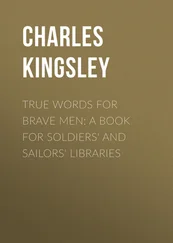Edward Bok - Successward - A Young Man's Book for Young Men
Здесь есть возможность читать онлайн «Edward Bok - Successward - A Young Man's Book for Young Men» — ознакомительный отрывок электронной книги совершенно бесплатно, а после прочтения отрывка купить полную версию. В некоторых случаях можно слушать аудио, скачать через торрент в формате fb2 и присутствует краткое содержание. Издательство: Иностранный паблик, Жанр: foreign_antique, foreign_prose, на английском языке. Описание произведения, (предисловие) а так же отзывы посетителей доступны на портале библиотеки ЛибКат.
- Название:Successward: A Young Man's Book for Young Men
- Автор:
- Издательство:Иностранный паблик
- Жанр:
- Год:неизвестен
- ISBN:нет данных
- Рейтинг книги:4 / 5. Голосов: 1
-
Избранное:Добавить в избранное
- Отзывы:
-
Ваша оценка:
- 80
- 1
- 2
- 3
- 4
- 5
Successward: A Young Man's Book for Young Men: краткое содержание, описание и аннотация
Предлагаем к чтению аннотацию, описание, краткое содержание или предисловие (зависит от того, что написал сам автор книги «Successward: A Young Man's Book for Young Men»). Если вы не нашли необходимую информацию о книге — напишите в комментариях, мы постараемся отыскать её.
Successward: A Young Man's Book for Young Men — читать онлайн ознакомительный отрывок
Ниже представлен текст книги, разбитый по страницам. Система сохранения места последней прочитанной страницы, позволяет с удобством читать онлайн бесплатно книгу «Successward: A Young Man's Book for Young Men», без необходимости каждый раз заново искать на чём Вы остановились. Поставьте закладку, и сможете в любой момент перейти на страницу, на которой закончили чтение.
Интервал:
Закладка:
Edward W. Bok
Successward: A Young Man's Book for Young Men
A FEW PREFATORY WORDS
THE average young man is apt to think that success is not for him. To his mind it is a gift to the few, not to the many. "The rich, the fortunate – they are the only people who can be successful," is the way one young fellow recently expressed it to me, and he thought as many do. It is this wrong conception of success which this book aims to remove. It has no other purpose save to show that success – and the truest and best success – is possible to any young man of honorable motives. The subject is not new, I know. All that is hoped for from this book is that it may have for young men a certain sense of nearness to their own lives and thoughts, from the fact that it is not written by a patriarch whose young manhood is far behind him. It is written to young men by a young man to whom the noise of the battle is not a recollection, but an every-day living reality. He thinks he knows what a fight for success means to a young fellow, and he writes with the smoke of the battle around him and from the very thick of the fight.
E. W. B.PHILADELPHIA, 1895.
I
A CORRECT KNOWLEDGE OF HIMSELF
THE first, the most essential, and the greatest element of success with a young man starting out to make a career is a correct knowledge of himself. He should, before he attempts anything, understand himself. He should study himself. He should be sure that, no matter whom else he may misunderstand, he has a correct knowledge of his own nature, his own character, and his own capabilities. And it is because so few young men have this knowledge of self that so many make disastrous failures, or fail in achieving what they set out for themselves at the beginning.
Every man in this world is created differently; no two are alike. Therefore, the nature, the thoughts, the character, the capacity of one man is utterly unlike that of another. What one man can understand another cannot. The success of one man indicates nothing to a second man. What one is capable of doing is beyond the power of another. Hence it is important that, first of all, a young man should look into himself, find out what has been given him, and come to a clear understanding of what he can do and what he cannot do.
It is one of the most pitiable sights imaginable to see, as one does so constantly, young men floundering and fluttering from one phase of life to another, unable to fasten upon any one, simply because a knowledge of themselves is absent. The result is that we see so many round men trying to fit themselves into square holes.
"But," some one will say, as asked a young fellow recently, "how in the world do you get at an understanding of yourself? How do you go about it?" No definite answer can be given to the question, any more than can a certain rule be laid down. An understanding of one's self is reached by different methods by different people, generally each method being personal to one's self. But this much can be said: every thought, every taste, every action, reveals ourselves to ourselves, and it is in the expression of these that we best learn our natures and our characters. We see ourselves with unmistakable accuracy, for example, in what we most enjoy in reading, in the people whose company pleases us most, in the things that interest us; and where our tastes and interest lead us we are generally truest to ourselves.
Some writer has said that most people find themselves out best while they are at play, upon the basis that a man shows his real side in the pleasures which he seeks and enjoys. This is true in a large measure. And the character of his pleasures will have both an indirect and a direct bearing upon the more practical side of his nature. If a young man visits an art gallery, for example, and finds that the pleasure he derives from the pictures takes the form of recreation to the mind, that he is delighted and interested in the canvases he sees so long as he is before them, but feels simply refreshed after he leaves the gallery, it is plain that his nature is not one suited to art as a vocation. He employs the picture as a means of recreation from some other study which has engrossed him most. If, on the other hand, his instincts lead him to an art gallery, and he studies rather than enjoys the pictures that he sees, is curious as to the methods of the artist, and goes away with his mind charged with the intention of getting further knowledge of what he has seen from books or other authorities, it is natural to assume that the art instinct is within him, and he should give it the fullest chance of development. But he should in every way feel, realize, and know that a love of art possesses him before he adopts it as a profession. And thus, in a way, a young man has an opportunity to study himself through his pleasures.
If, as a further example, a young man finds himself seeking the company of men older than himself, men of affairs of the world, is happiest when he can be in their company and hear them talk of business, chooses the reading of the lives of successful men as his literature, and leans toward the practical side of life, finding more real enjoyment amid the bustle of the mart than in the quiet of lane or park, the indications are that his nature points him to a business career rather than to a professional calling. If he feels this way, it is well for him to give his developing tastes full play, and follow where his instincts lead him. After a while what was at first a mere instinct or an unformed taste will develop and point him to something definite in the business world, and if he be true to himself he will sooner or later find himself in that particular position which he is best fitted to occupy and fill. His capacities will reveal themselves to him, and they will teach him his limitations. This knowledge need not thwart his ambitions, but I believe that ambition should always be just a trifle behind judgment, if possible, or, at all events, not in advance of it. Ambition is a splendid quality if properly guided and kept within check; it is a fatal possession when it is allowed too full development or sway. Like fire or water, it is a capital servant, but it makes a poor master.
I do not counsel, nor do I believe in, a blind following of one's self, particularly during the formative years of life. But I do believe most earnestly that every man is given a certain thing to do in the world, and that, by a proper study of himself, he, and he alone, can arrive at the clearest and surest knowledge of that particular object. I am a firm believer in the molding of character through the influence of another; but my conviction is equally strong that every man is the architect of his own fortune, and that his truest course in life is to follow not the guidance of another, but his own instincts. In other words, I think young men should, as early in life as possible, get into touch with the idea of their own responsibility, and be taught the great lesson that, however well others may advise, they, and they alone, must carve out their own careers. The most successful careers, the most honorable lives in the history of the world are those which have been shaped by their own hands. There is an element of danger in this, of course, but the element is small in comparison with the greater danger which lies in the foundation of a character against one's own instincts.
The aspirations of the young are not to be checked by the experience of the old. No matter how rich or full a man's experience may have been, it counts only in a sense of general application to another career which stands upon its threshold. Years should teach wisdom; but if we all waited for years to bring us wisdom, this world would be a sorry place to live in. Youthful imaginings may lead to mistakes, youthful enthusiasm may encounter disappointment, but only experience, real and actual, can demonstrate these things to a young man. And the experience is good for him if it teaches him a better and truer knowledge of himself and his capacities. The greatest figures in the world's history show that they were made through experience, and what experience taught them. This is not saying that the young have no use for the old. They have. But the rule should be, "Young men for action, old men for counsel." Experience looks backward; enthusiasm looks forward. And, as between the two, enthusiasm is worth more than experience, since it is the former which is brave and strong and attempts the impossible. If we attempted only the possible in this world we should soon stop where we are; it is for the young man, with his enthusiasm, to battle with the impossible and carry the world a step farther on in discovery, if not in actual accomplishment.
Читать дальшеИнтервал:
Закладка:
Похожие книги на «Successward: A Young Man's Book for Young Men»
Представляем Вашему вниманию похожие книги на «Successward: A Young Man's Book for Young Men» списком для выбора. Мы отобрали схожую по названию и смыслу литературу в надежде предоставить читателям больше вариантов отыскать новые, интересные, ещё непрочитанные произведения.
Обсуждение, отзывы о книге «Successward: A Young Man's Book for Young Men» и просто собственные мнения читателей. Оставьте ваши комментарии, напишите, что Вы думаете о произведении, его смысле или главных героях. Укажите что конкретно понравилось, а что нет, и почему Вы так считаете.












